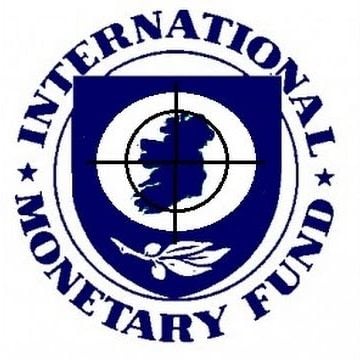
In their report on Article IV consultation, which ended on March 5, the Fund’s executives observed that the economy is exiting recession but remains vulnerable.
“New foreign exchange measures, rising oil prices, attractive yields on government securities, and a tighter monetary policy have contributed to better foreign exchange availability, increased reserves to a four-year high, and contained inflationary pressures.”
The directors in their opinion of the report of the Article IV consultation “noted, however, that important challenges remain, as growth in the non-oil, the non-agricultural sector has not picked up, inflation remains high and sticky, unemployment is rising, and poverty is high.
“To address these vulnerabilities, they stressed that comprehensive and coherent policy actions remain urgent.
Executive Directors agreed with the thrust of the staff appraisal. They welcomed Nigeria’s exit from recession and the strong recovery in foreign exchange reserves, helped by rising oil prices and new foreign exchange measures.
They commended the progress in implementing the Economic Recovery and Growth Plan, including the start of a convergence in foreign exchange windows, tight monetary policy, improvements in tax administration, and significant strides in improving the business environment.
“Directors emphasized the need for a growth-friendly fiscal adjustment, which frontloads non-oil revenue mobilization and rationalizes current expenditure to reduce the ratio of interest payments to revenue to a more sustainable level and create space for priority social and infrastructure spending.
“In addition to ongoing efforts to improve tax administration, Directors underlined the need for more ambitious tax policy measures, including through reforming the value-added tax, increasing excises, and rationalizing tax incentives.
“The implementation of an automatic fuel price setting mechanism, sound cash and debt management, improved transparency in the oil sector, increased monitoring of the fiscal position of state and local governments, and substantially scaled-up social safety nets should support the adjustment.”
While commending the central bank’s tightening bias in 2017, “which should continue until inflation is within the single digit target range”, they recommended the continued strengthening of the monetary policy framework and its transparency.”
Some of the directors urged consideration of a higher monetary policy rate, asymmetric application of reserve requirements, and no direct central bank financing of the economy.
“A few Directors urged confirmation of the appointments of the central bank’s board of directors and members of the monetary policy committee.
“Directors commended the recent foreign exchange measures and recent efforts to strengthen external buffers to mitigate risks from capital flow reversals.
“They welcomed the authorities’ commitment to unify the exchange rate and urged additional actions to remove remaining restrictions and multiple exchange rate practices” and stressed that rising banking sector risks should be contained.
The IMF welcomed the central bank’s commitment to helping increase capital buffers by stopping dividend payments by weak banks and called for an asset quality review to identify any potential capital need.
They noted that an enhanced risk-based banking supervision, strict enforcement of prudential requirements, and a revamped resolution framework would help contain risks.
Directors emphasized that structural reform implementation should continue to lay the foundation for a diversified private sector-led economy.
They noted that building on recent improvements in the business environment, implementing the power sector recovery plan, investing in infrastructure, accelerating efforts to strengthen anti-corruption and transparency initiatives, and updating and implementing the financial inclusion and gender strategies remain essential.
Directors welcomed the continued improvement in the quality and availability of economic statistics and encouraged further efforts to address remaining gaps.
On the positive side, the Fund noted that reforms under Economic Recovery and Growth Plan (EPRG) have resulted in significant strides in strengthening the business environment and steps to improve governance.
A higher fiscal deficit driven by weak revenue mobilization amidst still tight domestic financing conditions has raised bond yields and crowded out private sector credit.
Higher oil prices are supporting the near-term projections, but medium-term projections indicate that growth would remain relatively flat, with continuing declines in per capita real GDP under unchanged policies.
They warned that renewed import growth would reduce gross reserves despite continued access to international markets.
“After arrears clearance in 2018, the fiscal deficit would narrow, and public debt levels would remain relatively low, but the interest payments-to-Federal Government revenue ratio would remain high.”






